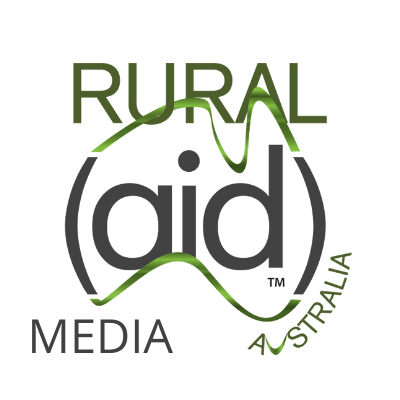Drought: Tears and tough tales as hay arrives for farmers

Orange region farmers Matt and Linda Hannelly have been in drought for three years.
Mullion Creek’s Ted and Nicole Gill have taken other jobs to make ends meet.
Like many farmers in the region much of their herds have died or been sold off.
Mr Hannelly and Mr Gill joined a line of more than 20 trucks from hard-working, but needy, district farmers who waited in line at the Borenore Field Days site on Monday to receive an allocation of hay trucked over from WA as part of the Rural Aid drought relief program.ADVERTISING
It was a similar case earlier in the day at a Molong property where truckloads of hay were unloaded for farmers and $500 gift cards were handed out.
One farmer there wept as he told Rural Aid officials how he needed the money to buy a pair of shoes for his young daughter.
Mr Hannelly said he now had only 10 head of cattle at his Ophir Road and Stuart Town farms.
“At Stuart Town I have been feeding for three years straight,” he said.

“I bought the property just at the beginning of the major part of the drought.
“It’s bad at Stuart Town. There’s no pick, there’s nothing left out there. Wildlife is the next problem, deer and kangaroos, deer is a huge problem. Rabbits are coming back through again, you just can’t win at the moment.”
He said this was his first allocation of free hay. “And it’s just come too late for me, throwing the livelihood of it [away]. I’m working trying to make up for it now.”
Mr Gill said he hoped to get 13 bales which would provide enough feed for his reduced herd of 100 head for about a week.
“Me and my wife [Nicole] have had to get jobs off farm,” he said.
Mr Gill said getting hay had been a major problem as some he had previously sourced “was just rubbish”.
Rural Aid general manager Wayne Thomson said delivery days were emotional.
“We had a farmer this morning who burst into tears. He said he hadn’t been able to buy a pair of shoes for his little daughter,” he said.
“It’s very emotional. There’s lots of tears. This morning there was a lot of hugging going on.”

At Borenore two trucks, each carrying 140 bales of hay which weighed 750-800 kilograms each, arrived.
Mr Thomson said each truckload cost $250,000, with transport the biggest component at $150,000.
The hay has been bought through donations to Rural Aid’s Buy a Bale scheme and government relief funding, particularly for the transport costs.
The donors included staff from the Merrylands RSL club in Sydney who have given $30,000. That was matched by the club’s board and in turn that was matched by Qantas Airways raising a total of $120,000
About 25 club staff visited the two donation sites on Monday by bus to meet farmers and see first hand conditions in the Central West.

Club CEO Bryn Miller said about 100 staff had been donating $5-$40 out of their pay each week since September toward drought relief.
Mr Miller, who grew up in Nashdale, said he still had family in Orange and was following the drought situation.
He said they would continue to donate funds and he would challenge other RSL clubs in Sydney to join their efforts.
“It is a long way from being over. You tend to forget about this when you are in the city,” he said.
“We hope the hay can make a difference. But we know only rain can make a difference.”
The article’s credit is for the source: Central Western Daily
